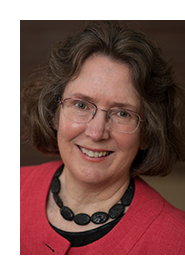PROFESSOR TERRY CONCLUDES HER SERVICE ON THE NOW-DISBANDED ABA AML GATEKEEPER TASK FORCE
 August 30, 2021 — Professor Laurel S. Terry, who is the H. Laddie Montague Jr. Chair in Law and Professor of Law Emerita, recently concluded her service on the ABA Task Force on Gatekeeper Regulation and the Profession, which she originally joined in 2012. During its August 2021 Annual Meeting, the ABA disbanded the Task Force and thanked the members for their service.
August 30, 2021 — Professor Laurel S. Terry, who is the H. Laddie Montague Jr. Chair in Law and Professor of Law Emerita, recently concluded her service on the ABA Task Force on Gatekeeper Regulation and the Profession, which she originally joined in 2012. During its August 2021 Annual Meeting, the ABA disbanded the Task Force and thanked the members for their service.
The ABA’s Gatekeeper Task Force focused on issues related to U.S. government and multilateral efforts to combat international money laundering and the implications of these efforts for lawyers and the profession. Although Professor Terry has concluded her service on this task force, she continues to be active in anti-money laundering (AML) initiatives related to lawyers. She participated in the development of the August 20, 2021 letter from the ABA to the Financial Action Task Force, which is an international intergovernmental organization that focuses on stopping money laundering and terrorist financing. The ABA’s letter was sent in response to FATF’s Public Consultation asking whether FATF Recommendation 24 should be amended and require lawyers and others to disclose beneficial ownership information. In July 2021, Professor Terry responded to a request that she submit comments to an ABA Center for Professional Responsibility Working Group that is considering AML-related potential amendments to the ABA Model Rules of Professional Conduct.
Professor Terry developed her expertise in legal profession AML issues as a result of writing three scholarly articles on the topic and her service work. In 2010, when serving as Chair of the AALS Section on Professional Responsibility, Professor Terry organized a session on this topic; the papers from this session, including Professor Terry’s paper entitled An Introduction to the Financial Action Task Force and its 2008 Lawyer Guidance, were published in the 2010 Symposium issue of the ABA’s Journal of the Professional Lawyer. In 2014, in anticipation of the U.S.’ 2016 FATF Mutual Evaluation, Professor Terry published an article entitled U.S. Legal Profession Efforts to Combat Money Laundering and Terrorist Financing. In 2018, she co-authored a paper entitled The Relevance of FATF's Recommendations and Fourth Round of Mutual Evaluations to the Legal Profession that she co-presented at the biennial International Legal Ethics Conference.
As part of her AML service and outreach work, Professor Terry prepared a two-page summary of the “red flags” set forth in the Voluntary Good Practices Guidance For Lawyers To Detect And Combat Money Laundering and Terrorist Financing, which was adopted by the ABA in August 2010 in Resolution 116. Professor Terry also worked on A Lawyer’s Guide to Detecting and Preventing Money Laundering, which was jointly prepared in 2014 by the ABA, the International Bar Association, and the Council of Bars and Law Societies of Europe or CCBE. Professor Terry has spoken about AML topics to regulators, academics, and practicing lawyers, and has prepared materials that include a 2019 AML Resources list and a blog post that discusses a lawyer-AML case.
Professor Emerita Laurel S. Terry, who held the inaugural H. Laddie Montague, Jr. Chair in Law and was Dickinson Law’s inaugural Associate Dean for Research and New Faculty Development, is a three-time Fulbright recipient who writes and speaks about the impact of globalization on the legal profession, especially with respect to regulatory issues. Her scholarship has identified emerging issues for the legal profession and urged stakeholder engagement, new initiatives, and regulatory reform. In addition to speaking at academic and professional conferences, she has been invited to speak about her scholarship to organizations that include the Conference of Chief Justices, the National Conference of Bar Examiners, the National Organization of Bar Counsel, the National Conference of Bar Presidents, the CCBE, which represents EU’s legal profession and legal regulators, the Federation of Law Societies of Canada, the International Institute of Law Association Chief Executives, the International Bar Association, and the International Conference of Legal Regulators.